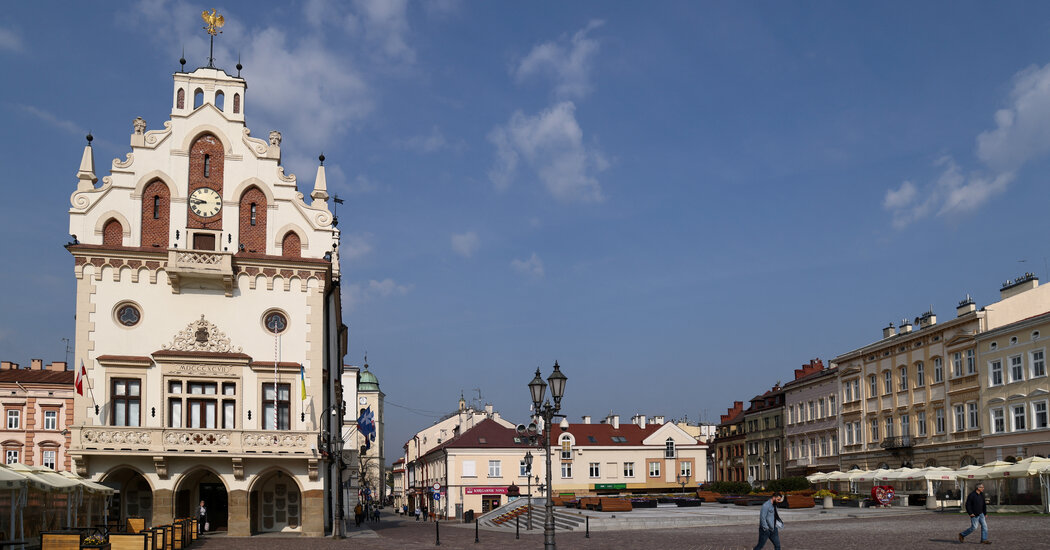Infection
Outbreak of Legionnaires’ Disease in Poland Kills 16
Infections have surged in Rzeszow, whose strategic location near the Ukrainian border has transformed it into a hub for the Western response to Russia’s invasion.
Sixteen people have died and over 150 have been hospitalized in southeastern Poland in an outbreak of Legionnaires’ disease, a severe strain of bacterial pneumonia, local health authorities said Wednesday.
The outbreak has been concentrated in the southeastern city of Rzeszow, which lies about 60 miles from the border with neighboring Ukraine, although some cases have been registered elsewhere. The Polish health ministry said this week that the most likely source of infection was Rzeszow’s municipal water network.
Once relatively quiet, Rzeszow has become an important hub for the international response to Russia’s invasion of Ukraine, hosting American soldiers and thousands of Ukrainian refugees. The deaths, which have occurred over the past week, sparked unfounded rumors in Poland of Russian responsibility for the outbreak that the authorities have tried to tamp down.
Stanislaw Zaryn, a deputy minister who oversees the country’s intelligence services, said Friday that the Polish internal security service was pursuing a routine investigation into the circumstances behind the infection to rule out “potential intentional action in this case.”
Prof. Robert Flisiak, an epidemiologist who leads the Polish Association of Epidemiologists and Infectiologists, said there had been no evidence that someone had sought to cause the outbreak.
“The actual number of registered cases in the last two weeks is what we usually record in two years,” Professor Flisiak said in an email. But the number of cases in Poland was still small compared to regular outbreaks in other European countries, he added.
Legionnaires’ disease can be fatal in about 10 percent of cases, according to the U.S. Centers for Disease Control and Prevention. Most healthy people exposed to the bacteria do not become sick, but the risk is higher among the elderly and people with weak immune systems.
The disease is usually spread by breathing in airborne water droplets — such as vapor from decorative fountains or hot tubs — rather than through interpersonal contact or drinking water, according to the C.D.C. In Rzeszow, a government crisis team shut off water fountains and drinking stations in response to the outbreak.
Over the past few days, local authorities in Rzeszow have treated the city’s water supply network with chlorine in an attempt to wipe out the infection, the municipality said on its Facebook page. The city recommended that residents — faced with the stench of chlorine coming from their taps — boil the water before consuming it.
Rising temperatures spurred in part by climate change may have played a role in the outbreak, Professor Flisiak said, as the bacteria that cause Legionnaires’ disease thrive in the heat. Like much of Europe, Poland has had sweltering temperatures this summer, part of a continentwide heat wave.
Anatol Magdziarz contributed reporting from Warsaw.

